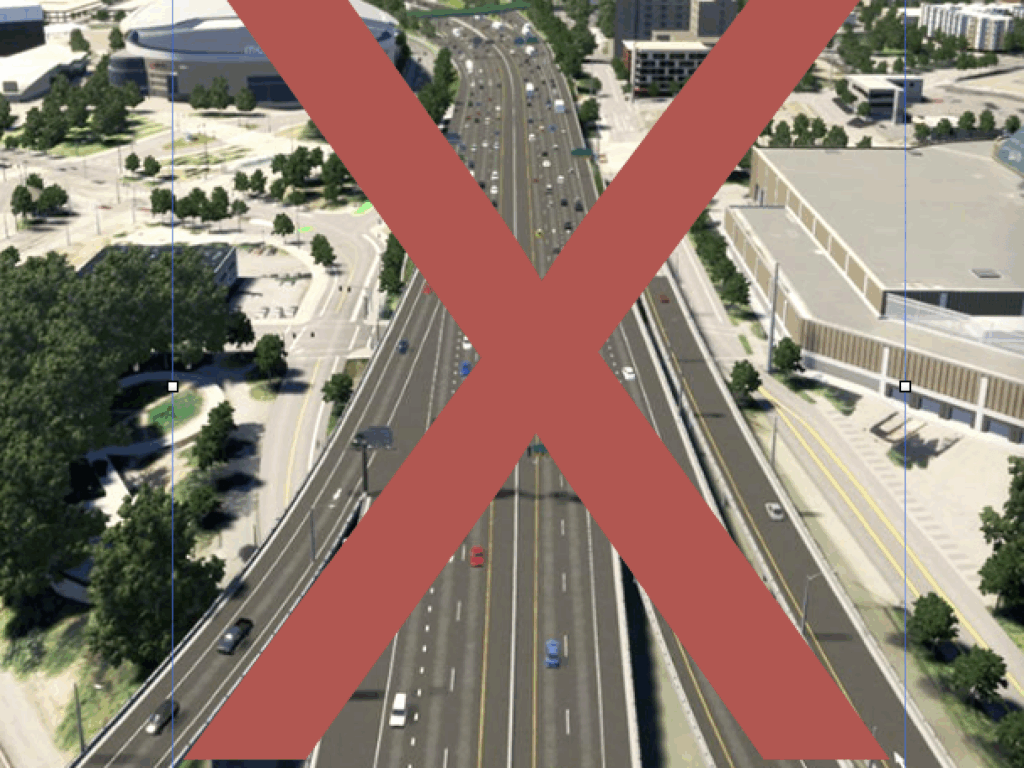Many states subject housing approval to environmental reporting requirements; what if we extended this same principle to car registrations.
Back in the early days of the environmental movement–the late sixties and early seventies, one lawyerly idea that was in vogue was the notion of requiring government policy decisions to be undertaken only after fair consideration of the environmental impacts they might have. The idea was that a lot of pollution and environmental degradation was the product of a failure to consider impacts and alternatives in advance, and that by requiring disclosure, governments would make better, greener decisions. The principle is codified in the National Environmental Policy Act, which requires Environmental Impact Statements for major federal decisions likely to influence the environment.
States like California and Washington are famous for their state-level environmental impact statement requirements, which are routinely applied to city and state development approvals for everything from new apartments to the construction of bike- and bus-lanes.
The essence of these requirements is that before undertaking a policy decision, the state and local governments should evaluate the environmental consequences of their actions. California’s CEQA (the California Environmental Quality Act), has been used to block housing developments around the state. Critics say that CEQA has become “the tool of choice for preventing cities from approving high-density housing . . .. with a quarter of lawsuits against CEQA-reviewed projects targeting housing.” Similarly, in Washington State, the State Environmental Policy Act (SEPA) has routinely been used to challenge higher density housing. The act was even used to object to an environmental foundation’s zero net energy building, because it didn’t include parking spaces. And while actual court victories under these laws are rare, the threat of a CEQA or SEPA lawsuit is often a powerful bargaining chip in negotiations to force developer concessions.
The premise for these environmental disclosure laws is, for the most part, a good one: government decisions ought to be undertaken with a clear understanding and careful weighing of the environmental consequences. So, if we’re going to have such policies, maybe we should consider applying them to particularly environmentally damaging activities licensed by the government.
That got us thinking: Why not apply these same policies at the Department of Motor Vehicles? Before the DMV issues a license for a new vehicle, it really ought to be required to consider the environmental impact of doing so. Each additional car on the road will add to road congestion, air pollution, and greenhouse gases, and will likely pose a safety risk for other road users, especially persons on foot and bicycle. For example, the Environmental Protection Agency estimates that the average car generates 4.6 tons of carbon dioxide emissions per year, so each 2-year car registration should acknowledge the impact of 9 tons of CO2 emissions. Just as cities now limit the construction of new housing when they think neighborhoods are getting overcrowded, maybe cities could set numerical limits on the issuance of new car licenses: that would certainly attack the problem of congestion and pollution more directly than is done now.

A DMV granting a vehicle license is functionally no different than a city planning department granting a building permit, so in theory it seems like the environmental review laws could apply.
Setting tough requirements for vehicle registration to protect the environment isn’t unusual. Other countries take an entirely different approach to vehicle registration. In Japan, car owners are required to show that they have their own private off-street parking space in order to register a motor vehicle.
It seems to us like a modest proposal: if impact statements make sense for houses, why not apply them to cars–which seem to be a much more serious environmental threat, in light of recent evidence about the growth in greenhouse gas emissions. The fact that we haven’t done this already in the decades of experience with environmental impact statement requirements speaks volumes about the built-in pro-automobile bias in our current legal structure (which has been cataloged in detail in a superb article by Greg Shill).
You can add this to our earlier modest proposal that we extend the Americans with Disabilities Act to freeways, and insist that state highway departments provide accessible bus service on limited access roadways–places that are now effectively unavailable to those who are too young, too infirm or too old to drive. It’s another example of how we might take some fundamental and established provision of law and apply it in a way that is more supportive of our stated social and environmental values.
In the end, it may well be outlandish to require such individual impact statements for car registrations. Alternatively, we might just do the reverse: make getting a apartment building permit as easy and automatic as getting a car registration? Just a thought.

